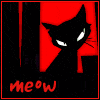MODALS AUXILIARIES
Modal auxiliaries is express the wide range of meaning
The functions of modals are
1. ABILITY
Present time Past Time Future Time
Can can could can
Be able to am was shall
Is able to were able to will be able to
are
2. PERMISSION
May may might may
Might might
Can can could can
Could could
3. OBLIGATION
ADVISABILITY
Should should should have should
Ought to ought to ought to have ought to
4. NECESSITY
Must must had to must
Have to have to had to will have to
Has to shall have to
5. POSSIBILITY
May May May have May
Might might have might
Examples
ABILITY
- Can you type?
- When I was young, I could/ was able to climb any tree in the forest
- Our baby will be able to walk in a few weeks
- I couldn’t dance when I was a child, but I can dance very well now.
PERMISSION
- I may leave the office as soon as I have finished
- Can I have a drink of water
- In those days, anyone could enroll for this course
- May I bring my nice to your party tomorrow night?
OBLIGATION (what one is expected to do)
- You should/ought to do your homework every day
- John should have gone to the dentist yesterday
· Should and ought to, used for obligation, normally have the same meaning but should is the more usual form
ADVISIBILITY (what is wise for one to do)
- She should/ought to eat less if she wants to lose weight
- You should/ought to study hard if you want to pass that examination
NECESSITY
- This is an excellent book. You must/have to read it
- You’ve been traveling all day. You must be tired
- I cannot see clearly. I have to wear glasses
· MUST is generally felt stronger than HAVE TO
POSSIBILITY
- Tom may lend you the money
- If you invited him, he might come
- The teacher may arrive late because of the trouble of his motorcycle















Tidak ada komentar:
Posting Komentar